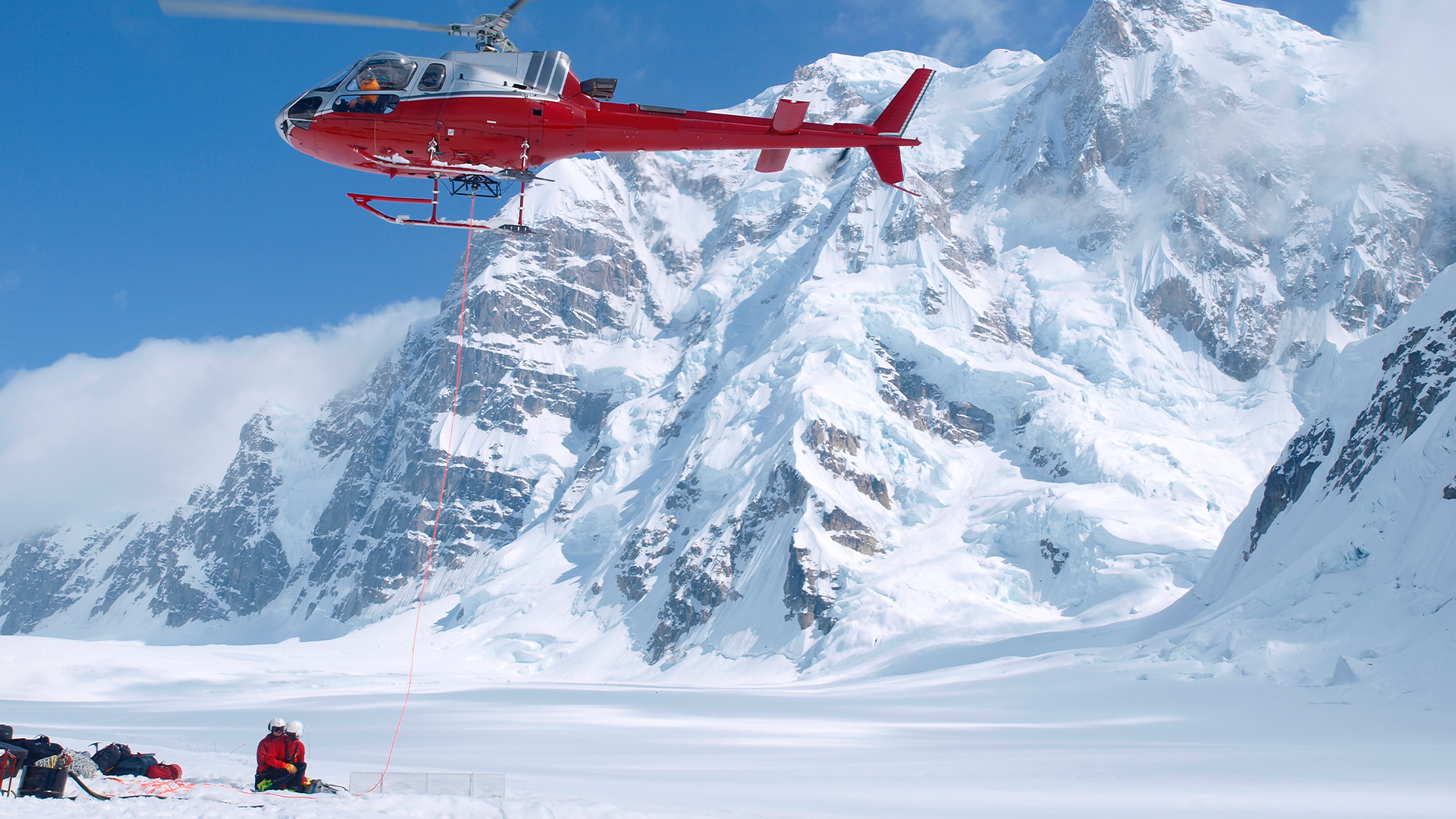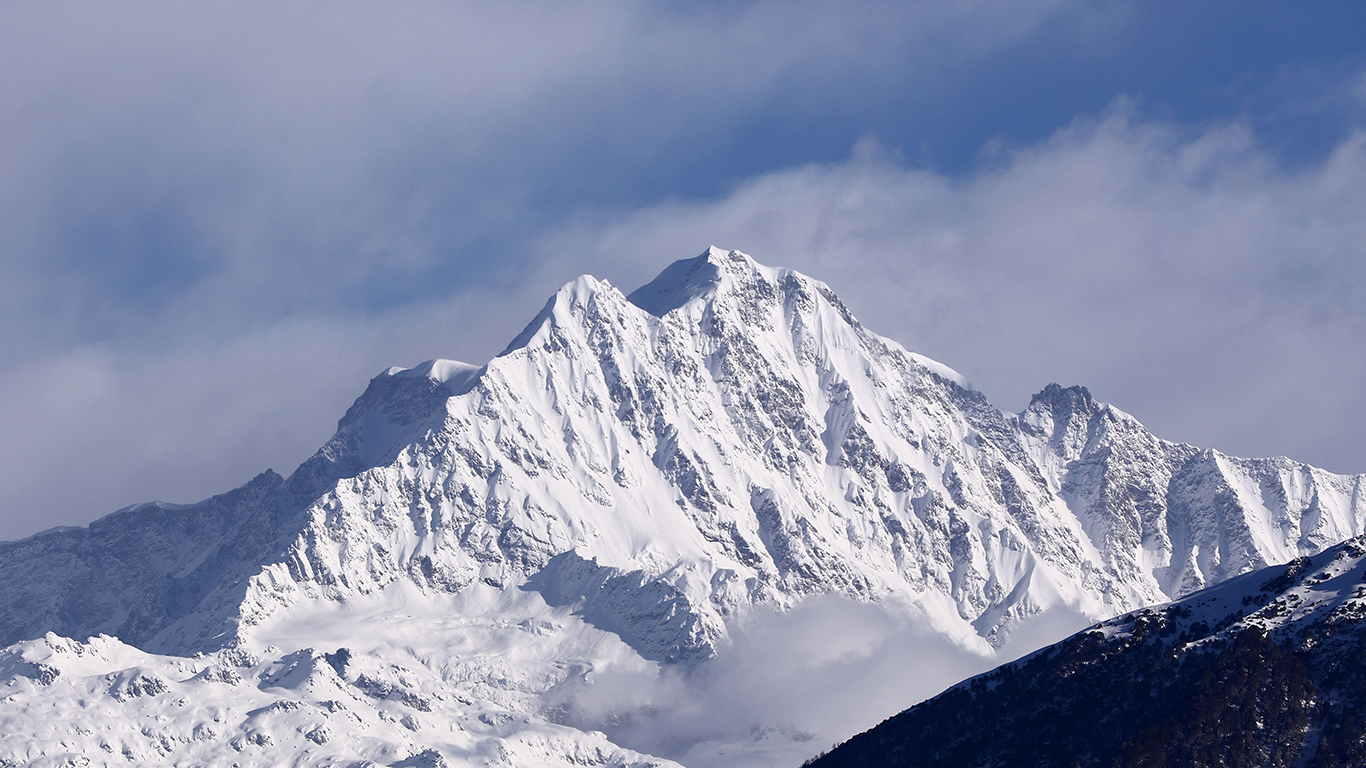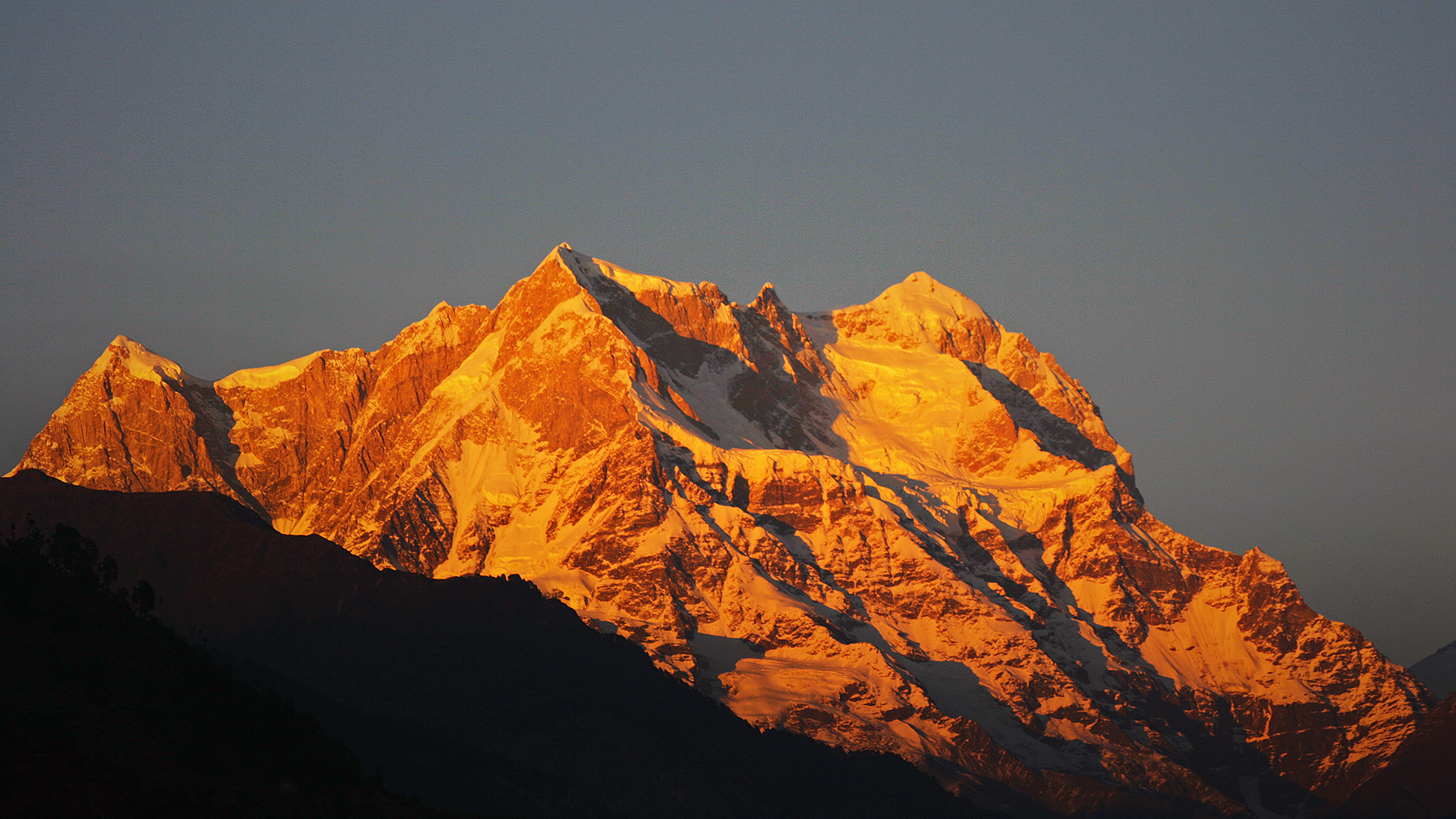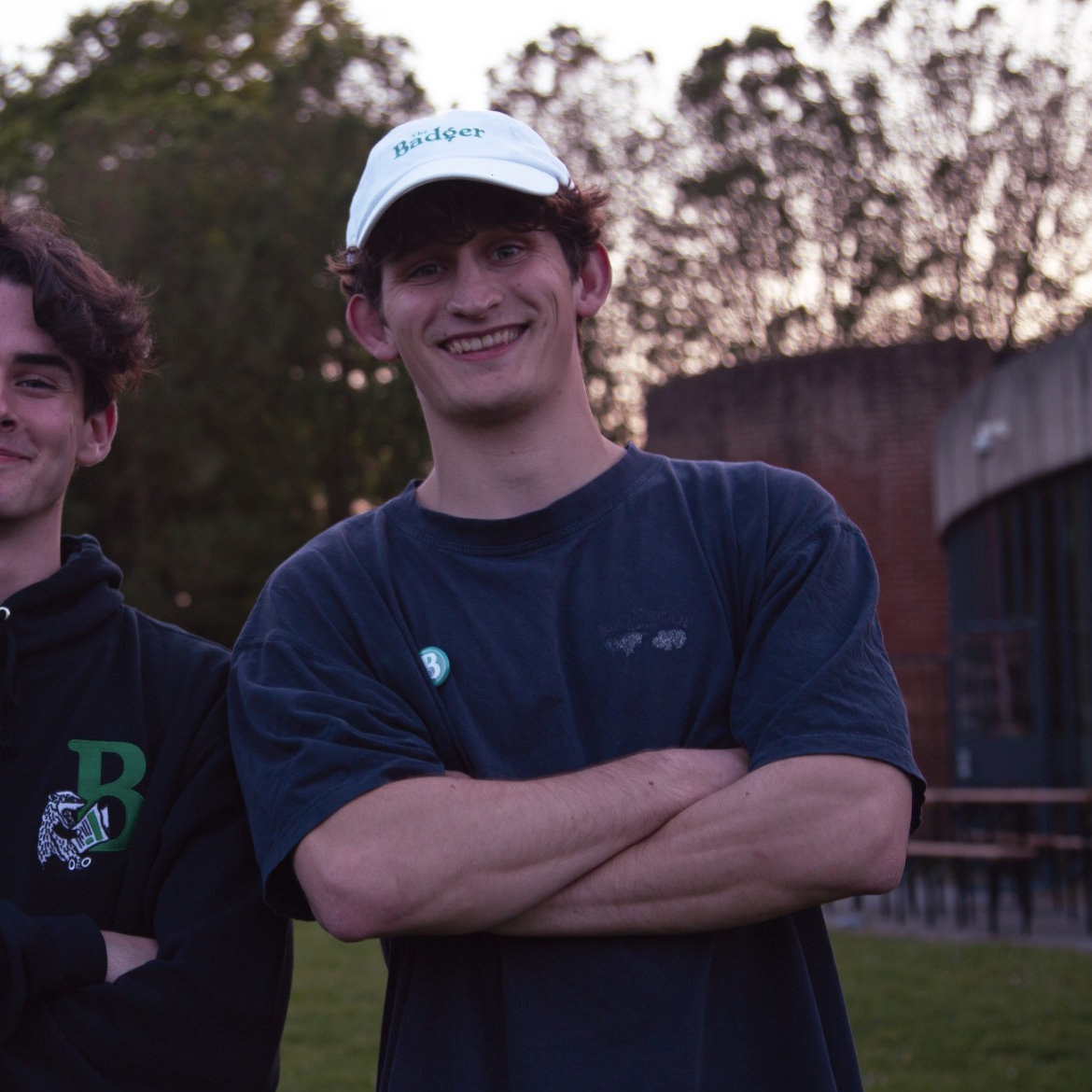“It was a beautiful moment" – French climbers reveal how they rescued pair stranded at 20,000 feet in Himalayas
American and British climbing partners Michelle Dvorak and Fay Manners found themselves stranded at over 20,000ft without food, climbing gear or shelter

The French climbers responsible for the rescue of an American and British duo from the icy Chaukhamba 3 mountain, have spoken up, revealing how they located and rescued the women at over 20,000ft (6,096 meters) in unforgiving conditions.
Earlier this month, Michelle Dvorak and Fay Manners found themselves in a dire situation, stranded near the peak of the towering Chaukhamba 3 mountain in the Indian Himalayas. Disaster struck approaching the summit, when a freak rockfall cut the rope carrying Manners’ gear, sending her food, equipment and shelter plummeting down the mountain. Without any way of safely ascending, the pair faced starvation and hypothermia in temperatures below -10°F / -23°C. Huddling under a ledge, they shared their one remaining sleeping bag and sent an emergency SOS message to the Indian Mountaineering Foundation.

Despite an extensive three-day helicopter search, the Indian Air Force was unable to locate the pair due to worsening conditions. However, three French climbing experts had also joined the search party. All members of the French army’s elite mountaineering corps, Lieutenant-Colonel Jacques-Olivier Chevallier and two other soldiers had been attempting to summit the daunting Indian peak when they heard about the stranded climbers through mutual friends. Abandoning their initial goal, the trio immediately set out to locate the women, trekking 4.2 miles from base camp to their second camp, near where the women had sent the SOS, to look for signs of life.
Chevallier told The Times: “We feared the worst and we didn’t want to embark on a rescue operation until we worked out exactly where they were.
“They had given their altitude in the SOS, so we knew the rough area, but it was essential to pinpoint their position.”
Desperately searching for signs of life, another soldier spotted a light on the mountainside.
“That was the breakthrough,” said Sargent Vivian B, who cannot be identified under army regulations, in the same interview. “We knew at least one of them was alive so we decided to go and get them.”
Advnture Newsletter
All the latest inspiration, tips and guides to help you plan your next Advnture!

Setting off at 7 a.m. the next morning, the trio negotiated treacherous rockfalls and uncertain terrain on their way to the women.
“We had been preparing for our expedition for three months”, added Clovis P, another soldier who cannot be fully identified. “No one knew Chaukhamba 3 better than us.”
Although they’d spotted the incoming Frenchmen, Dvorak and Manners were unaware if they were there to rescue them or simply summit themselves, so decided to attempt a part of the descent on their own. With little equipment and even less energy, they miraculously managed to abseil down 2,000ft (610 m), where they were met by the French climbers who reassured them of their intentions.
“We’re here to rescue you,” Clovis can be heard saying in footage captured on his GoPro.
“You are?” replied a relieved and emotional Manners.
“It was a beautiful moment,” continued Clovis. “I’ll always remember it. We were all freezing. We had brought food for them and the first thing I did was to melt snow so they could drink.”
After safely ascending some of the way together, the group was collected by an Indian Air Force helicopter and flown to safety the next morning.
“We’re incredibly happy to have got them back alive and to have a story with a happy ending to tell,” concluded Chevallier, who hopes to return to the mountain soon for a successful summit.
- The best winter hiking boots: for unbeatable performance in the cold
- The best emergency blankets, bags and shelters: lightweight lifesaving gear

Will Symons developed his love of the outdoors as a student, exploring every inch of Sussex’s South Downs national park and wild swimming off the Brighton seafront. Now a Staff Writer for Advnture, Will previously worked as a freelance journalist and writer, covering everything from cricket to ancient history. Like most Advnture staff, Will’s time is rarely spent indoors, he can often be found hiking, wild swimming or playing cricket.
